A Brief Colonial History Of Ceylon(SriLanka)
Sri Lanka: One Island Two Nations
A Brief Colonial History Of Ceylon(SriLanka)
Sri Lanka: One Island Two Nations
(Full Story)
Search This Blog
Back to 500BC.
==========================
Thiranjala Weerasinghe sj.- One Island Two Nations
?????????????????????????????????????????????????Tuesday, August 4, 2020
How Likud’s Ashkenazi elite became the patron saints of the Mizrahim
Benjamin Netanyahu and his Ashkenazi allies are exploiting Mizrahi resentment in order to delegitimize the current protests.
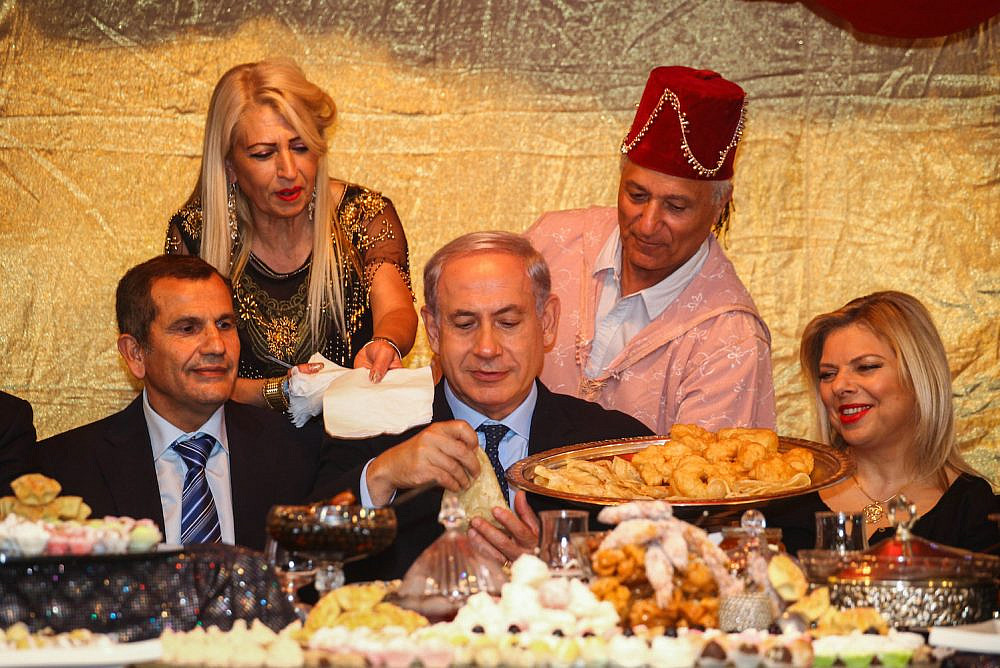 |

For the past month, Prime Minister Benjamin Netanyahu and his supporters in both the Likud party and the media have done all they can to paint the protesters against him as “treasonous” and “anarchists.” The goal has been two-fold: energizing the Likud base while delegitimizing the protests.
Saturday night’s protest outside the Prime Minister’s Residence, which reached a fever pitch of tens of thousands of demonstrators, was a clear indication that the attempt to smear the Balfour Street protesters is failing. Yet Netanyahu’s acolytes seem to have another trick up their sleeve: painting the demonstrations as a cabal of the liberal Ashkenazi elite, while inciting the Mizrahi public against the protesters.
For decades, Mizrahim [Jewish Israelis with roots in Arab and Muslim countries] have faced racism and discrimination at the hands of Ashkenazim [Jews with roots in Eastern Europe who have historically been considered the ruling class in Israel] in nearly all realms of life, including access to resources, housing, culture, etc. Meanwhile, Zionist ideology imbued Mizrahim with a hatred for Arabs while concurrently caused many to erase their own Arab identity. The Israeli right has exploited the real resentment of Mizrahim for its own political purposes, and today they form a large segment of the right wing’s base.
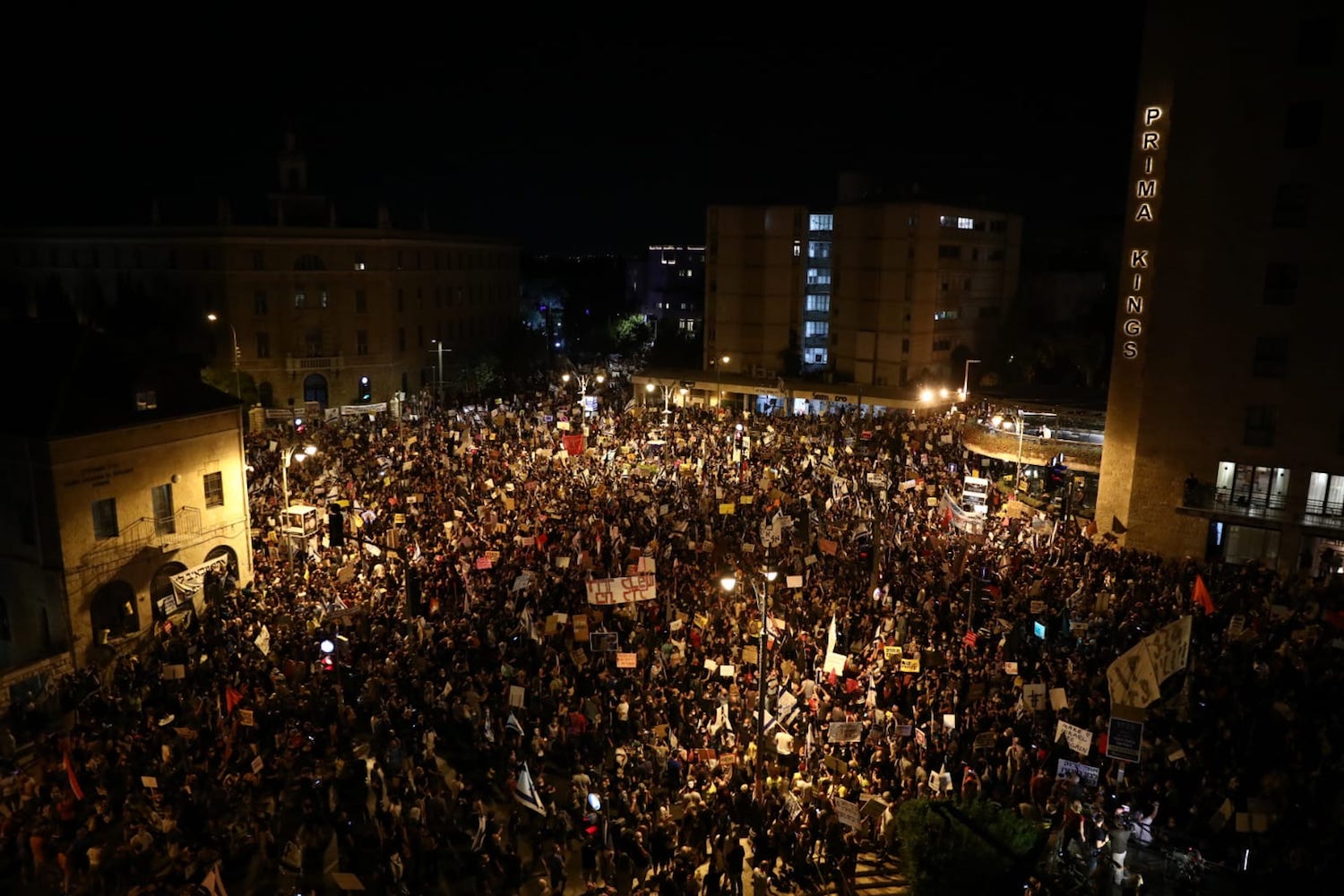 |
All at once and in full coordination, the prime minister’s Ashkenazi minions in the media seem to have become the patron saints of Mizrahi consciousness. Take, for example, a debate between former Jewish Home MK Yinon Magal, a hawkish Ashkenazi journalist, and Yifat Bitton, a law professor and Mizrahi feminist activist who researches anti-Mizrahi discrimination in the Israeli legal system. Magal, who is part and parcel of the Ashkenazi elite, told Bitton that he is a better representative of Mizrahim because she is a “leftist.”
This is the same Magal who, alongside Shimon Riklin, another pro-Netanyahu journalist, verbally attacked Barak Cohen, a Mizrahi political activist and lawyer who regularly records himself accosting and shaming public figures accused of corruption. A video of the confrontation shows Cohen approaching Magal and Riklin as they sit in a cafe in central Tel Aviv’s Habima Square, telling them they “destroyed the country” and reminding them of the people who are still waiting for government assistance during the current economic slump. In response, Riklin calls Cohen a “Yemeni worm” and a “servant of Ashkenazim.”
The next media figure to join the anti-Ashkenazi brigade was none other than Ashkenazi political commentator and historian, Gadi Taub. Taub, who likes to present himself as a “former leftist,” took to Twitter last Friday to liken the Balfour protesters to the Israeli Black Panthers, a group of radical Mizrahim who were persecuted by the Israeli government and personally scorned by then-Prime Minister Golda Meir in the 1970s. “Like Golda Meir said: they are not nice people. After all, that’s the motto of these joyous Ashkenazi celebrations,” Taub tweeted.
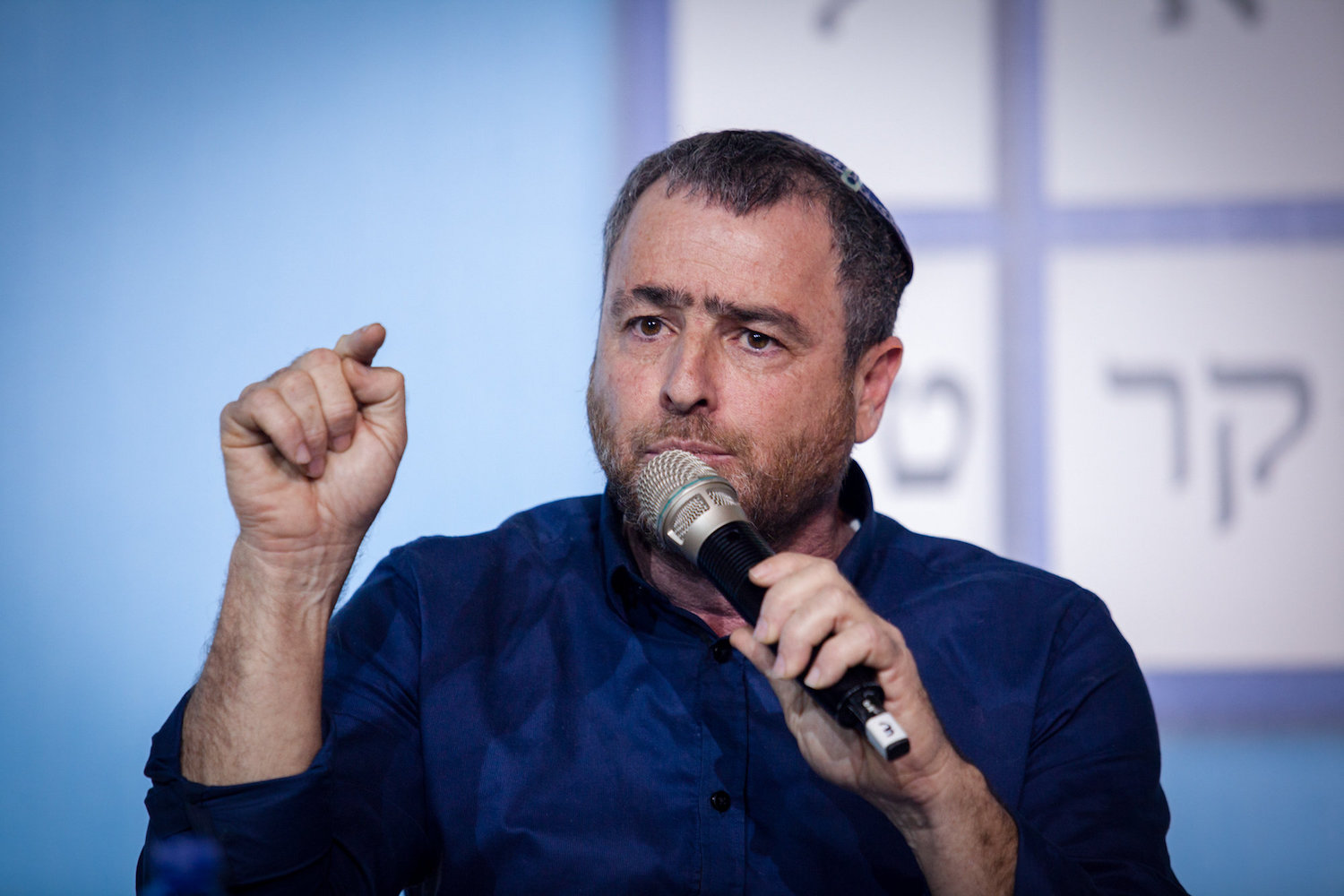 |
It would be funny if it weren’t so tragic. Taub, an Ashkenazi academic who enjoys all the privileges of his ethnic background, derides the “Ashkenazim” of Balfour in the name of radical Mizrahi activists.
And of course, no campaign of hate by the pro-Bibi camp is complete without help from Yair Netanyahu, the prime minister’s son. Last Monday, Yair took to Twitter to criticize kibbutzniks, historically associated with the Israeli left, calling them “communists who stole half the country’s land at the expense of the development towns.”
Yair’s tweet referred to an ongoing dispute between Kibbutz Nir David and the development town of Beit Shean in northern Israel over access to the Hasi River, which passes through the kibbutz. The kibbutz bars non-kibbutz residents and locals from neighboring communities from visiting the river, despite it being a natural resource that should be open to the public.
Yair’s concern for the residents of the development towns — a code word for Mizrahim in Israel — could have been heartwarming were it not for his family’s indecent track record when it came to the Mizrahi public. That indecency was on full display two years ago during a speech by the prime minister in the northern development town of Kiryat Shmona. As Netanyahu was inaugurating a new emergency room alongside Deputy Health Minister Yaakov Litzman, Orna Peretz, a Mizrahi woman and local activist, interrupted the prime minister to protest the closure of another emergency room in the area, echoing complaints by locals that they face discrimination and are forced to travel long distances for proper medical facilities.
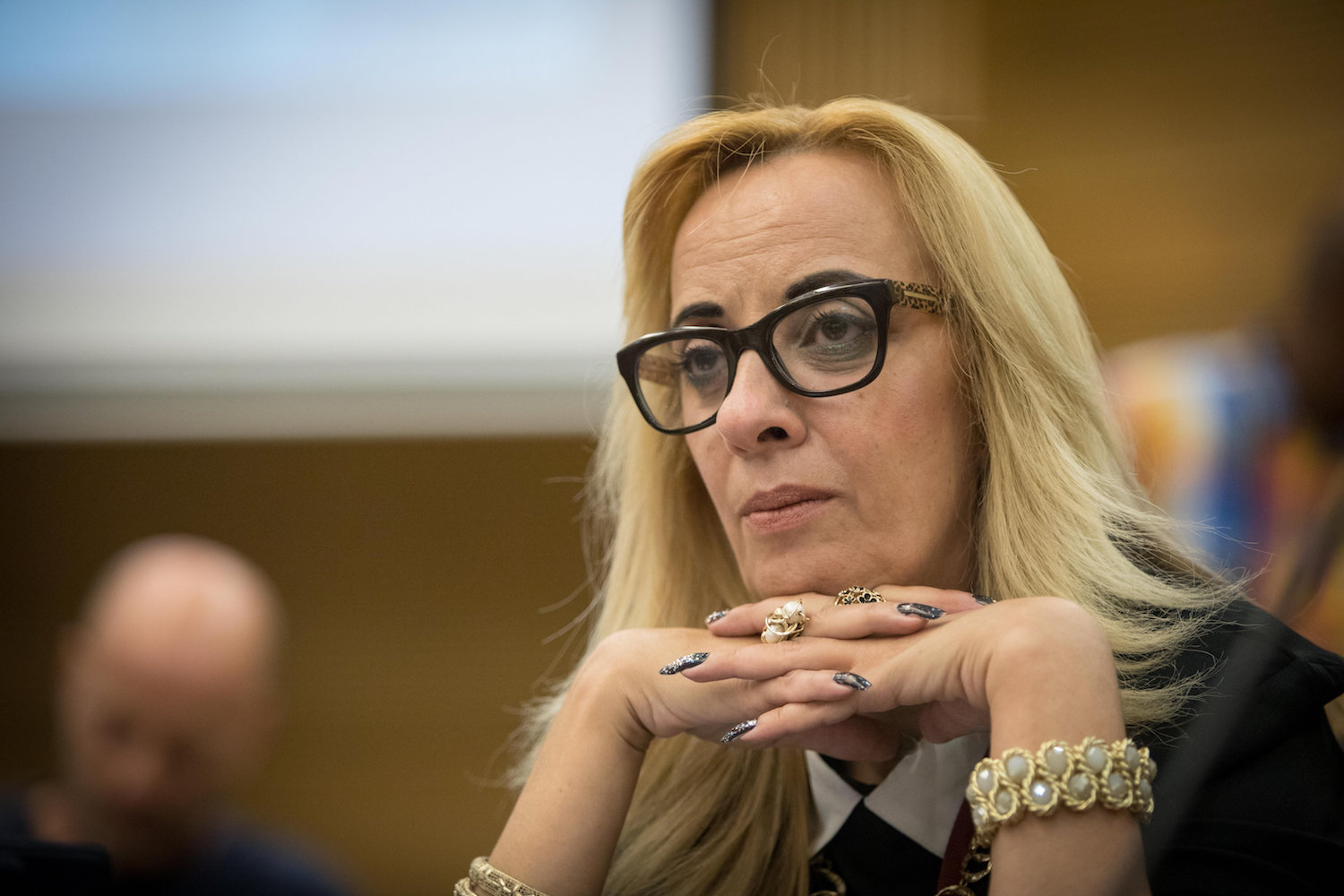 |
In response, Netanyahu told Peretz: “Look, you’re simply uninteresting. You’re boring us. We want to discuss things that interest us. Come back when you have something interesting to say.” Peretz responded: “I vote for you every four years, and if that’s how you treat your public then shame on you. It is contemptible.”
Contempt is probably the most accurate way to describe the Netanyahu family’s attitude and that of their associates toward Mizrahim. In his lawsuit against the Prime Minister’s Office, former caretaker of the Prime Minister’s Residence Mani Naftali noted in detail the abuse he suffered at the hands of Sara Netanyahu, the prime minister’s wife. On one occasion, Sara allegedly told Naftali: “We are Europeans. We are delicate, we do not eat as much as you Moroccans. You fatten us up and then when we are photographed abroad, we look fat.”
Naftali’s lawsuit opened the floodgates for a torrent of complaints by women who worked at the residence , the majority of whom are Mizrahi, over the reported abuse suffered at the hands of the Netanyahu family.
Netanyahu himself is no stranger to anti-Mizrahi attitudes. In March 2017, when asked by Finance Minister Moshe Kahlon — who is of Libyan decent — why the prime minister had called for a six-month delay of the inauguration of a new public broadcaster, Netanyahu responded “my Mizrahi gene acted up.” Netanyahu would apologize for the stereotyping after an uproar from across the political spectrum.
So how does this group of Ashkenazim, who time and time again express their contempt for Mizrahim, succeed in marketing the prime minister as the patron of Israel’s Mizrahi public?
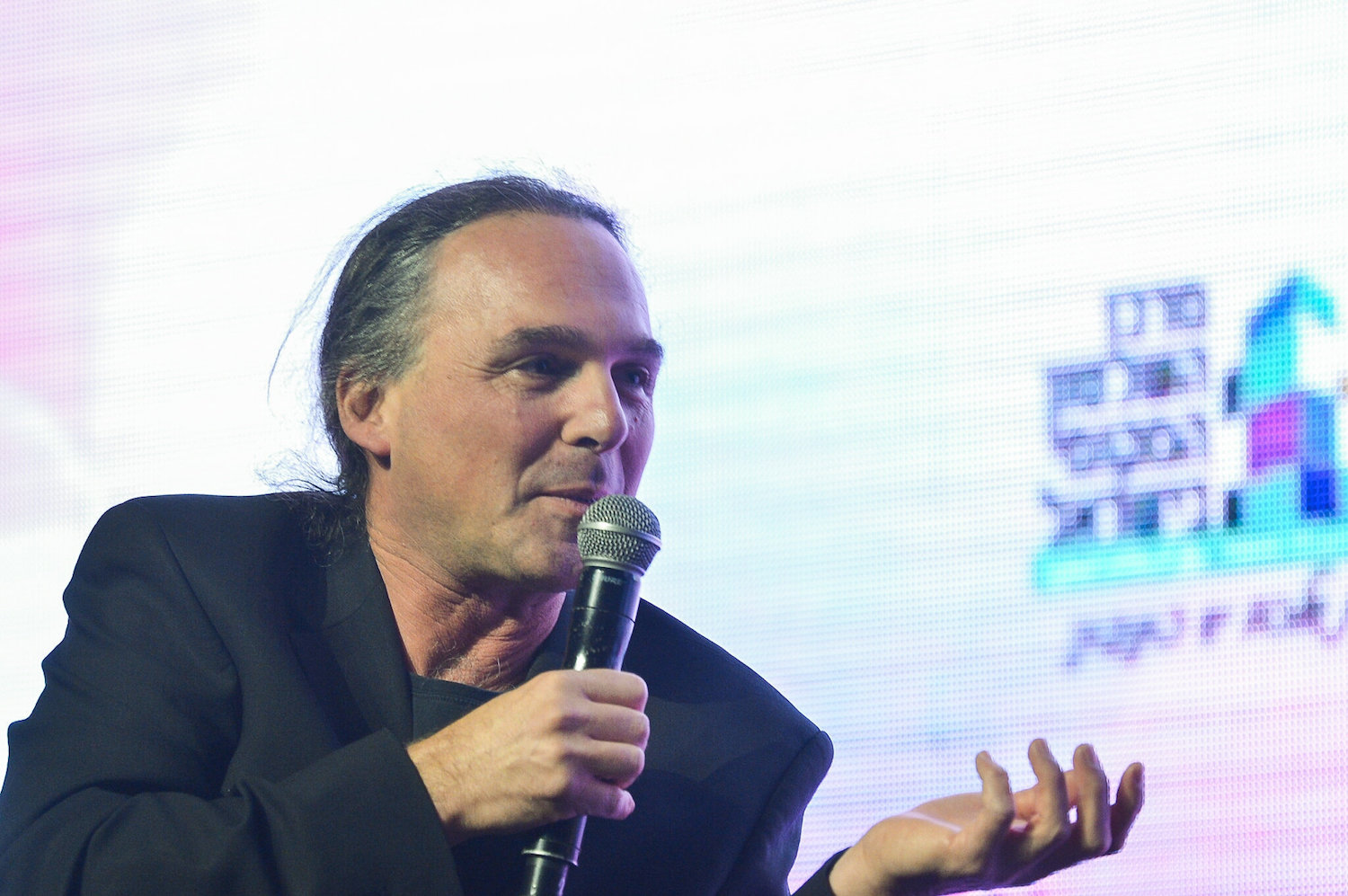 |
This success, and the attempt to label the current wave of protests against Netanyahu as “Ashkenazi,” belongs to Avishay Ben Haim, a journalist of Moroccan descent and one of Netanyahu’s most outspoken supporters in the Israeli media. Ever since the start of investigations into the prime minister’s corruption scandals, Ben Haim has been promoting the theory that Israel’s old Ashkenazi elite, which he labels “the First Israel,” is persecuting Netanyahu for representing the “Second Israel,” a synonym for Mizrahim. For this reason, Ben Haim says, Mizrahim must back the prime minister unequivocally.
Netanyahu’s manipulative attitude toward Mizrahim was plain for all to see in the run-up to the September 2019 elections. Just days before Israelis headed to the polls, a recording of the prime minister’s confidant, Natan Eshel, making disparaging comments about “non-Ashkenazi” Israelis was leaked to the media. In a taped conversation, Eshel implied Mizrahim “hate everything” and that the Likud party had “succeeded in whipping up that hatred. Hatred is what unites our camp.”
Sadly, Eshel is largely right: years of labeling Mizrahim as barbaric and violent by both sides of the political spectrum have played their part. Netanyahu is now reaping the fruits of this ongoing dehumanization by embracing Mizrahim while igniting the flames of incitement against his “Ashkenazi” opponents.
Last Wednesday, a group of right-wingers violently attacked demonstrators following a protest outside Public Security Minister Amir Ohana’s home in Tel Aviv. Protesters who recorded the attacks were able to identify some of the people involved; all of them had distinctly Mizrahi last names.
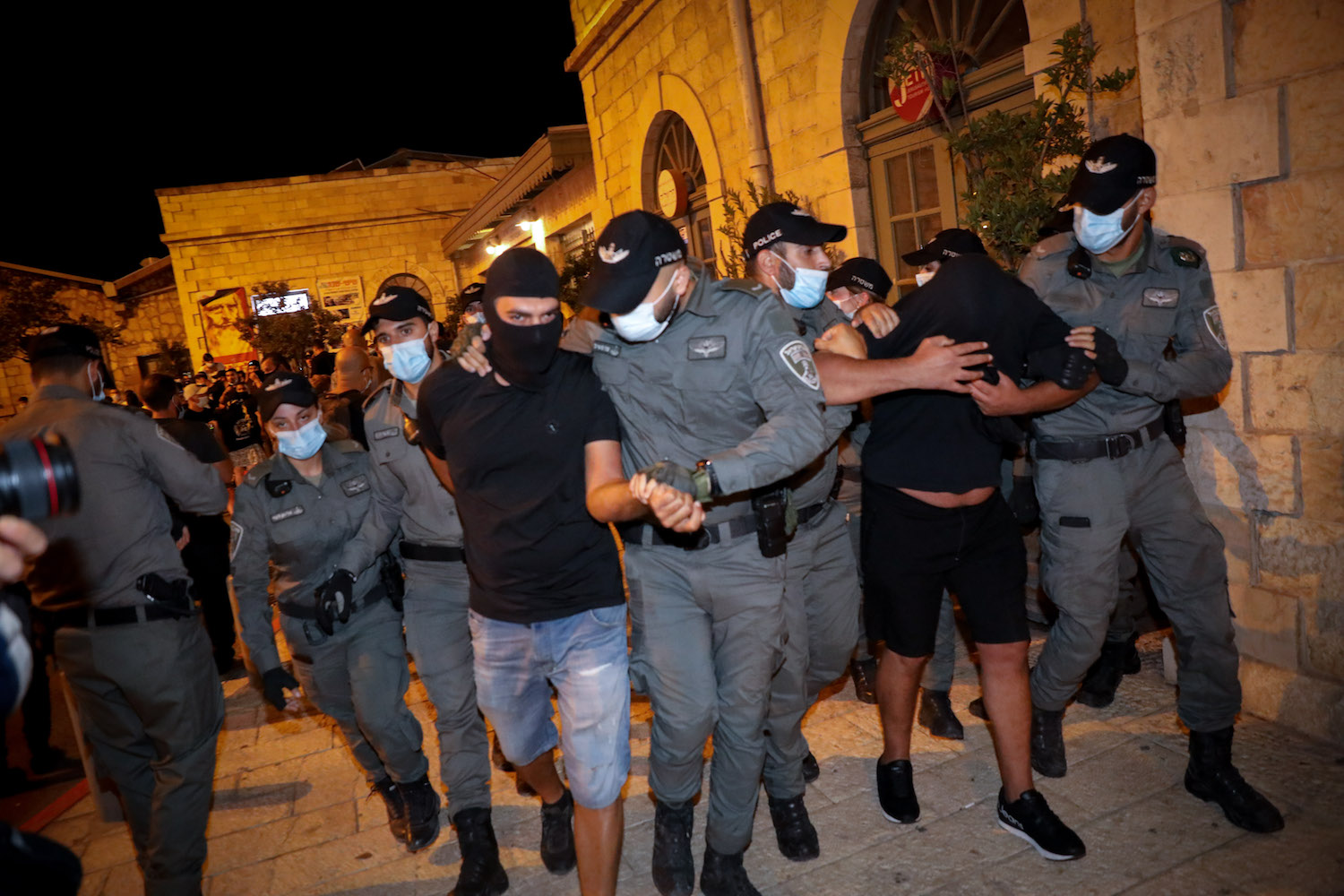 |
Natan Eshel’s Machiavellian insight is remarkably accurate. In Israel 2020, one can be an Ashkenazi leader and the longest-serving prime minister, despise Mizrahim, continue the policy of neglecting development towns, and still present oneself as the savior of the Mizrahi public. All one needs to do is flatter them with symbolism and empty gestures, ignite their rage against the “left” that was responsible for their plight in the 1950s (especially as large segments of the left continue to act with arrogance and racism toward Mizrahim), fan the flames of their hatred against Palestinians, and finally direct that rage against the right’s political opponents.
The murderous hatred I saw in the eyes of the Mizrahim of La Familia shows that this strategy is working phenomenally.
